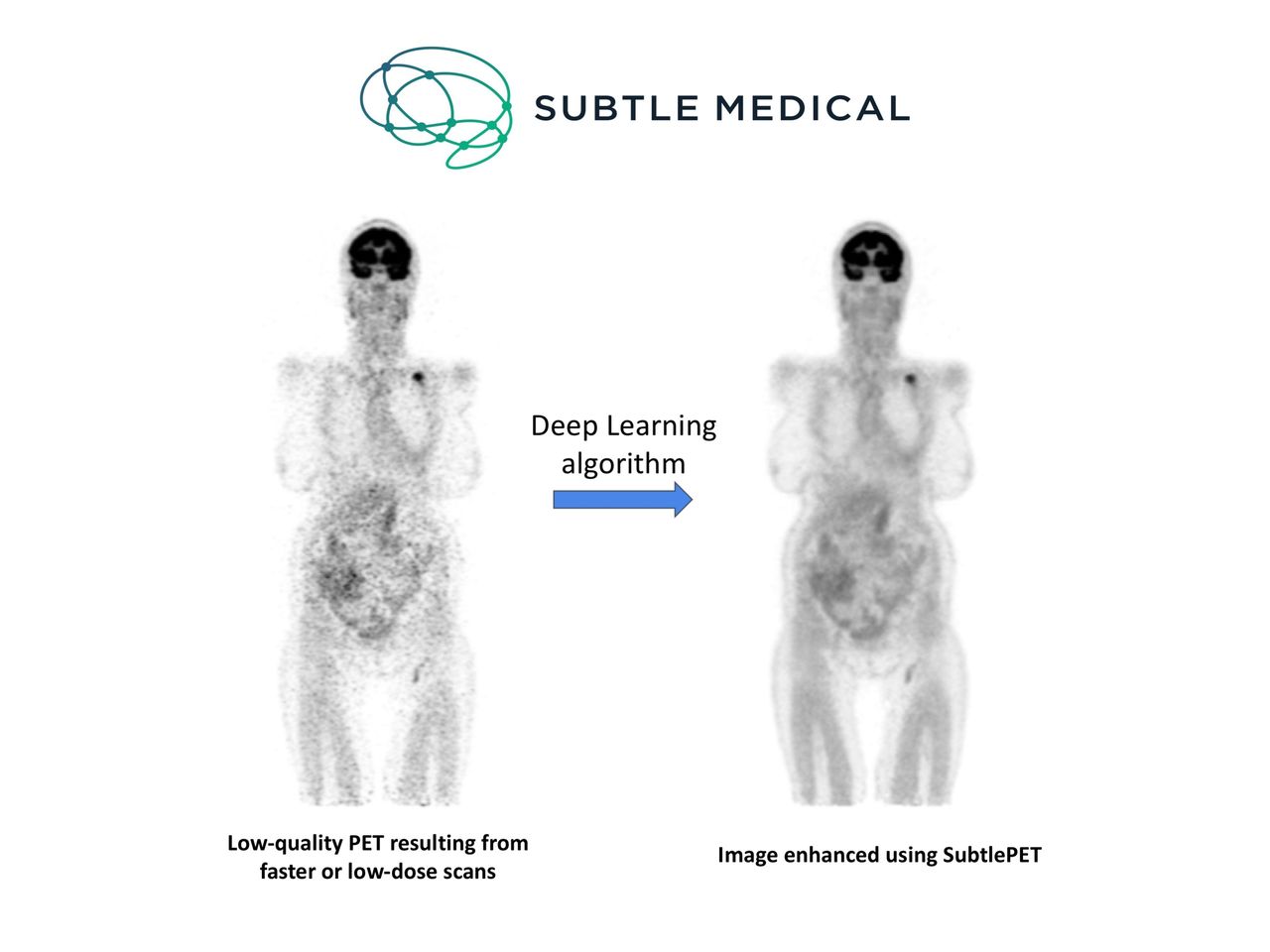← All posts
Subtle Medical Uses AI to Speed up Imaging Exams and Reduce Risks

Edit from NVIDIA AI Blog: How Subtle Medical Is Using AI to Slash Costs, Risks of Medical Scans
July 23, 2018 by KAREN XIA
If you’ve ever had a MRI exam before, you know the discomfort of having to hold still inside a claustrophobic tube with loud clanging all around you for 30 minutes or sometimes an hour. What if soon, this could be shortened to just several minutes, without any compromises to the image quality or diagnosis?
PET scans and MRIs are used to produce detailed images of a patient’s organs and internal structures, which help doctors diagnose medical conditions. PET and MRI scans may take 45 minutes to an hour to capture the full human body. This means that over 35 million patients each year, in the U.S. alone, collectively spend countless hours and billions of dollars on medical scans.
Subtle Medical, an NVIDIA Inception program award winner, aims to improve the inefficiencies of the process. And by changing the process, they hope to drastically improve the productivity of the hospitals and the experiences of the patients.
Greg Zaharchuk and Enhao Gong, Subtle Medical’s founders, met at Stanford University, where Dr. Zaharchuk advises Dr. Gong in his doctoral research. Their research works demonstrate AI can further improve medical imaging for faster and more accurate exams. Their company uses deep learning to improve image quality, which can reduce the duration of MRI and PET scans 4x-10x.
In addition to reducing the length of time people spend inside MRI scanner, their technology can improve medical scans’ safety. Gadolinium, a potentially harmful metal, is deposited in the body during MRI contrast scans, and its alleged side effects have led to lawsuits. Subtle Medical team have worked on technology that cuts the amount of contrast dose needed by up to ten-fold.
The company uses NVIDIA GPUs and CUDA to train its deep learning model. GPU computing allowed its research team to accelerate their image enhancement pipeline from ~10 minutes per patient to ~10 seconds per patient.
Going forward, the company hopes to expand to clinical trials, where their findings can directly help patients and hospitals. Despite having been founded just a year ago, Subtle Medical expects to apply for FDA clearance this year.
“We want to bring this technology into clinical applications so that all the patients and hospitals can benefit from this,” Gong said. “We want to empower hospitals and imaging centers with AI infrastructure to make medical imaging faster, cheaper, and smarter.”


